This is the unexpurgated version of my article published on Autocar’s website recently. Space is precious on a mainstream website, but here I can do what I like! I have split the article into a two-part feature describing the high and low point of my Porsche ownership experience.
Part Two – The Low
The Crash
The next part of this story moves into a Matrix-style bullet time scene as we watched the Clio cut across the apex of the corner, suddenly brake, lock its wheels and then slew towards our car rather than continue on its original trajectory towards their side of the road. Impact. The front of the Clio slammed into the nearside corner of our beloved Porsche and ended up pushing us through ninety degrees until we stopped fully across the road with the steam of released coolant billowing out of the bonnet. The four of us got out of the car and surveyed the wreckage. The passenger of the Clio was already out of the car, but the driver was not. Before long, we were joined by local Gendarmes and a fire crew.
With my O-Level French, I was just about able to keep tabs on what was happening, but following an admission by my wife that her neck hurt a little, we soon found her strapped flat to a stretcher and being carted off to Rouen hospital without anyway of following her. I was stuck at the roadside with my two boys unharmed, a very harmed Porsche and our luggage to deal with. The Porsche was to be taken to a yard for storage and we would have to meet the driver of the Clio the following morning to complete paperwork before we would be able to return to the UK. This paperwork was going to prove to be the source of much regret.
By great fortune, the owner of the gîte was an anglophile and he was extremely helpful in organising a taxi so that the boys and I could get to the hospital holding my wife. The taxi driver was equally friendly and tried to act as a translator for me and the hospital staff. In a brief moment of triumph, I discovered that my French was better than his English but the effort was much appreciated. By the time we found her, she had already been released and we were free to go. Breathing with a huge sigh of relief, we then had to tackle the issue of getting back to the UK.
Getting Home
The remainder of the evening was spent in ever increasing frustration. My chosen company for European breakdown cover proved to be an absolute disaster. They claimed they had not received payment, in spite of taking my credit cards details at the time of booking and sending through membership details. I was told that since there was no payment, and in spite of my pleas to pay there and then, I was informed that no assistance would be coming from them.
The next option was my insurance company in the UK. It was a Saturday afternoon and I was merely dealing with a third party call centre that would inform my insurers of the exciting turn of events on Monday morning. No help from there either.
At this point my language was such that I couldn’t possibly repeat it here, but suffice to say that I was tired, worried and irritated in equal measure. The long night was spent on the phone trying to find the best way out of France without incurring unnecessary expenses that the insurers would then refuse to cover. I was horrified to discover just how expensive last minute travel could be in France and, notably, trying to organise it for a Sunday. One final call to Hertz car hire told me that renting a car in Rouen and dropping it off at their depot in Heathrow would cost me something in the region of £1300. The call handler then casually noted that, if I could return it to Rouen in a couple of days, it would only cost circa £100. Sorted.
The Mistake
Before departing, we had to deal with the paperwork for the accident. The Clio driver arrived at our gîte at 10am on the Sunday morning and but then took another five minutes to actually get inside the guest house. He was evidently severely disabled by pre-existing illness and was unable to walk without the aid of sticks. After eventually getting him and his companion into the building, we sat down to read the papers he produced. I was told that we had to complete the Constat Amiable document that detailed the circumstances of the accident and it had to be signed by both parties.
Given our desperation to get out of the country and return home, I looked over the paperwork and found that my understanding of French legalese wasn’t as good as I’d hoped. Worryingly our host, out of earshot of the other party, warned us to be careful about what he and I filled in. I discovered that the driver had already filled in some parts of the form – not only on his side, but also mine. Although sensing a problem, I filled in the remainder of the form as best I could, wrote that I didn’t agree with his markings, quickly signed the form and sent the driver on his way.
This, as it turns out, is where the big problem arose.
Having confirmed that a crossing booked on the EuroTunnel isn’t tied to a particular vehicle, we grabbed a taxi to the Hertz depot in Rouen, collected a Ford Focus estate car and we were racing towards the tunnel to use our originally booked crossing. The threatened delays at Calais were nowhere near as bad as expected and by early evening we parked the Ford on our own driveway – in a state of shock.
Monday was spent finding the best way to get the Focus back to Rouen the next day and avoiding the French farmer blockades on my return. I arranged to take another Eurotunnel crossing and drive the hire car straight back to Rouen the next day. I then took two trains to get to Charles De Gaulle airport, fly back to Gatwick and eventually got home late that night after a good friend collected me from the airport.
The Battle
Now to deal with the insurance. I had sent photos to them and they informed me that their engineers considered it would be a write off. Then they offered a bizarrely paltry settlement with the explanation that they expected the 14 year old Porsche 911 to have around 54,000 miles on the odometer. Since mine was at a rather more reasonable 118,000 miles, they had hacked away at the settlement figure and decided they could only offer £11,000 to close the claim. I had originally bought the car at £15,000 but, in a strange turn of fortune, nearly all Porsche 911s had increased in value since that point.
Since the insurers were obliged to pay “market value” to allow me to buy a replacement vehicle, their offer was some way off my original purchase price and even further off the elevated market position. When I contacted the Insurance Ombudsman for advice, even though no decent advice was given, the insurers automatically increased their offer to full “book” value. Intriguingly, my inaction and various calls to the insurers stating I couldn’t accept their offer, led them finally to ask what offer I would accept. Like a fool, I answered truthfully that the absolute cheapest equivalent car I could find was £17,500. They immediately agreed and, after deducting the excess allowances, they transferred the funds into my account. It occurred to me later that a less scrupulous man would have fibbed about the true value, but at least I got a sum that I felt was just about fair.
The final twist in the tale concerned the Constat Amiable document. When my insurers scrutinised the file, it turned out that the Clio driver had claimed that I was on the wrong side of the road and that was why he had hit me. This was a complete falsehood but, given there were no other witnesses and I had signed the document like a damned fool, the insurers said there was nothing they could do. Even though I had disagreed with what he had written, his position took precedence. My insurers paid my loss against my own insurance, with no hope of claiming it back from the third party. Curiously, my insurers never received a claim for the damage to the Clio. This can only be a relief give the likely impact to further worsen my insurance rating, but still I do wonder why.
The Lessons
In hindsight, I should have a) refused to complete a document that was already marked by the third party, b) been more careful about understanding what was written on the page, c) not assumed that everyone would tell the truth and d) expected the shocking rise in my insurance renewal – even though my “no claims bonus” was protected.
With the settlement value sitting in my bank account and us all safely at home, I should really feel that it all ended well. That is true, but the whole incident and aftermath was such a shock to us all that the memory of the event is still rather raw. Understandably, the prospect of me replacing the 911 with another, does not sit well with my darling wife. I do miss having a 911 to play with but, for now, I can console myself with trawling the classifieds looking for the next Porsche bargain of the century.
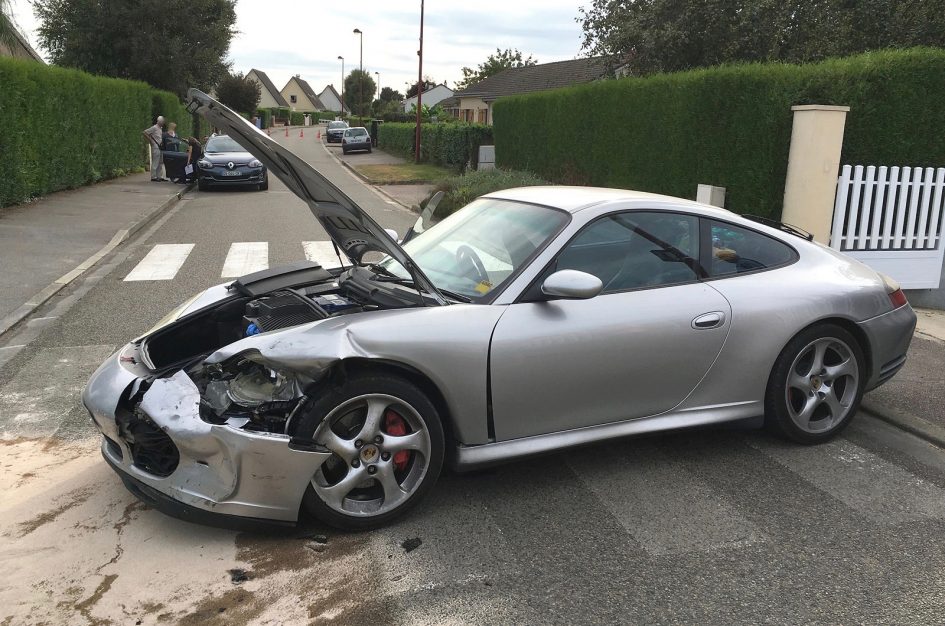
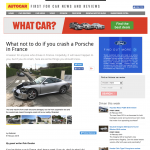
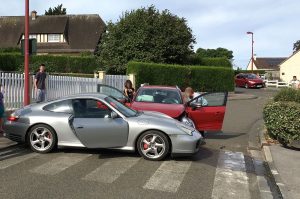
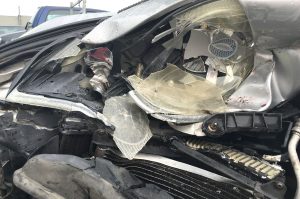
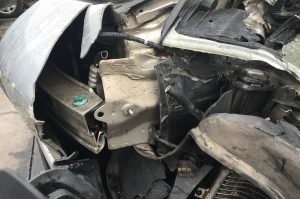
Recent Comments